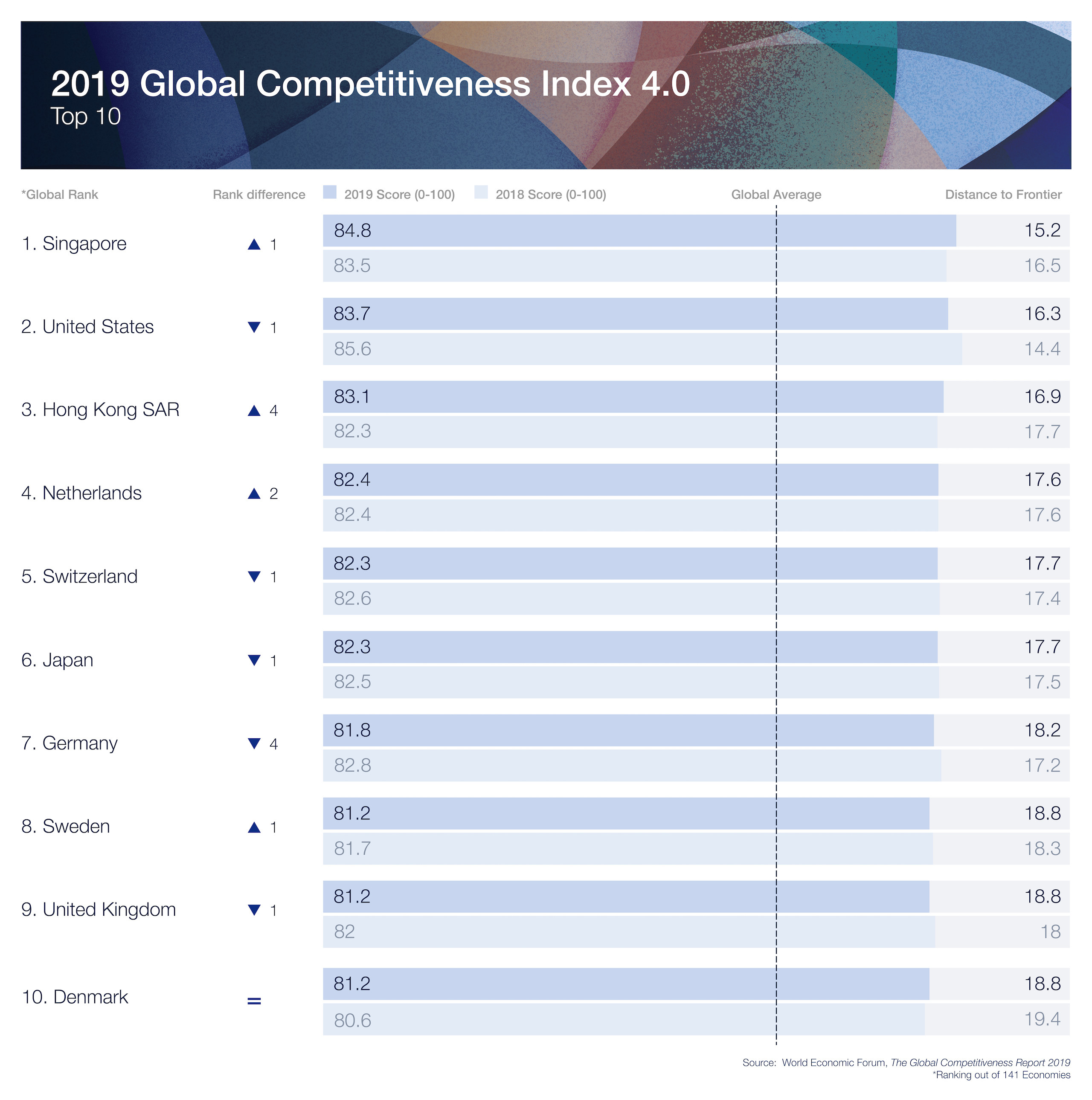These countries are the best at attracting, developing and retaining talent

Switzerland is ranked the world’s best country for attracting and nurturing talent for the 10th year in a row. Image: Unsplash/samferrara

Get involved with our crowdsourced digital platform to deliver impact at scale
Stay up to date:
Education, Gender and Work
- The Global Talent Competitiveness Index 2023 ranks 134 countries on their ability to attract, develop and retain skilled people.
- Switzerland, Singapore and the US are the top three ranked countries for talent competitiveness.
- Companies are exploring better promotion prospects and higher wages to attract more talent, according to the World Economic Forum’s Future of Jobs Report 2023.
Countries that can attract, develop and retain talent – skilled people – can boost their competitive edge in the global economy.
French business school INSEAD has been tracking the talent competitiveness of countries since 2013 and has just published the 10th edition of its Global Talent Competitiveness Index.
The 2023 index ranks 134 countries across all income groups on their talent performance to help countries shape policies and action for improvement.
Which are the most talent competitive countries?
Switzerland is ranked the world’s best country for attracting and nurturing talent for the 10th year in a row, followed closely by Singapore and the United States.
Denmark, the Netherlands, Finland, Norway, Australia, Sweden and the United Kingdom are the other top 10 countries for talent competitiveness.
Europe dominates the index with 17 countries in the top 25. Also joining the top 25 are Australia, Canada, New Zealand, the United Arab Emirates, South Korea and Israel.
Notably, this year marks the first time that Japan hasn’t made the top 25 – it’s been replaced by South Korea.

Moving and improving talent competitiveness
The Global Talent Competitiveness Index categorizes countries as talent “champions”, “movers”, “limpers” or “laggards”.
Talent champions are consistently strong in all, or almost all, dimensions of talent competitiveness. These include attracting, growing and retaining talent and improving vocational and technical skills.
Talent movers are improving their talent competitiveness, while limpers and laggards are lower scorers in talent competitiveness.
What do we mean by ‘competitiveness’?
In the 2023 index, China (CN) and Russia (RU) have moved from being talent movers to talent champions, INSEAD finds. Indonesia (ID) has remained as a talent mover but has made the biggest improvements in its talent competitiveness over the past 10 years.
Mexico (MX) has been promoted from a talent laggard to a talent mover. Brazil (BR) remains a talent laggard, but may well soon be categorized as a talent mover. Retaining talent is a key strength in all five of these countries, INSEAD says.
What are countries doing right (or wrong) to attract talent?
Switzerland’s high levels of social protection and the quality of its natural environment are key factors in its talent competitiveness, the index finds.
Including more university or college-educated employees in the workforce is a possible area of improvement for Switzerland.
Singapore ranks highly for formal education and its ability to match workforce supply and demand. The city-state’s openness towards overseas business and talent are “particularly impressive,” INSEAD says.
Greater personal rights and more doctors would help Singapore retain more talent.
Among the talent competitiveness improvers, Mexico is a top ranker in lifelong learning, thanks to the “good quality of its business masters programmes and the opportunities for employee development,” the index finds.
Being more open to foreign talent would help Mexico attract more talent.
In the next 10 years, quality of life and sustainability will become increasingly important talent attraction factors, the index notes.

Attracting talent in the future
In its Future of Jobs Report 2023, the World Economic Forum explores how jobs and skills will evolve over the next five years and how employers will develop their talent.
Businesses surveyed for the report say they’re confident about developing their existing workforce, but are less sure what the availability of talent might look like in coming years.
In response to this, almost half of companies believe improving their talent promotion and progression processes will help them increase the availability of talent to their organization.
Offering higher wages and offering effective reskilling and upskilling are other talent attraction strategies that more than a third of companies expect to deploy.
Technology and the climate crisis are expected to be key drivers of new job creation over the next five years, through roles such as AI and machine learning specialists, sustainability specialists and renewable energy engineers.
Don't miss any update on this topic
Create a free account and access your personalized content collection with our latest publications and analyses.
License and Republishing
World Economic Forum articles may be republished in accordance with the Creative Commons Attribution-NonCommercial-NoDerivatives 4.0 International Public License, and in accordance with our Terms of Use.
The views expressed in this article are those of the author alone and not the World Economic Forum.
The Agenda Weekly
A weekly update of the most important issues driving the global agenda
You can unsubscribe at any time using the link in our emails. For more details, review our privacy policy.
More on Economic GrowthSee all
Roger Spitz
May 3, 2024
Sreevas Sahasranamam and Vivek Soundararajan
May 3, 2024
Wolfgang Fengler and Homi Kharas
May 3, 2024
Meagan Andrews and Haleh Nazeri
May 3, 2024
Joe Myers
May 3, 2024
Gayle Markovitz and Kate Whiting
May 2, 2024








